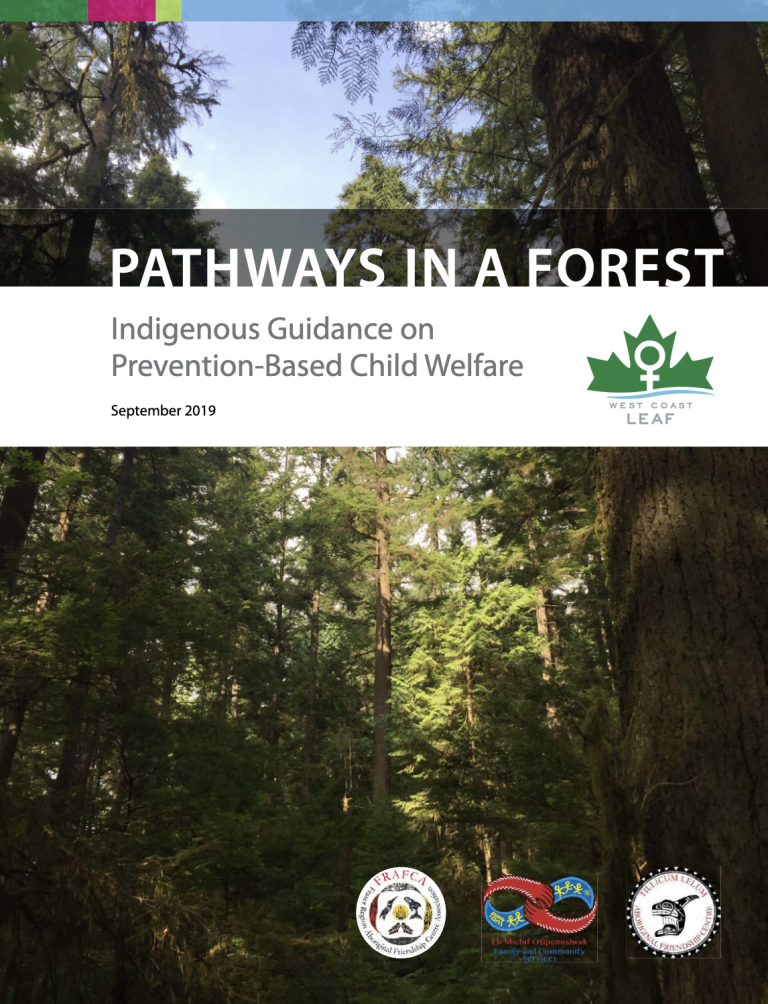9 search results
for
Decolonization and Indigenous rights
Recommendations for systemic reform
Recommendation 1: The BC government should work with Indigenous communities to undertake a comprehensive and transparent assessment of the steps that need to be taken to address the disparities in the social determinants of health for Indigenous peoples in BC.-
Category and theme:
Audience:
Groups affected:
Recommendations for legislative reform
Recommendation 4: MCFD should undertake a comprehensive legislative review of the CFCSA in order to bring the provincial child welfare standards in line with the federal minimum standards. It is essential that Indigenous communities and Nations are adequately consulted in the review process.-
Category and theme:
Audience:
Groups affected:
Recommendations for legislative reform
Recommendation 5: MCFD should amend the guiding principles of the CFCSA to ensure that children’s rights are not viewed as hierarchical but interdependent. The guiding principles should reflect the holistic nature of children’s rights including the right of the child to maintain relationships with their family and community, the child’s right to support services, and the importance of maintaining the child’s relationship to their culture.-
Category and theme:
Audience:
Groups affected:
Recommendations for legislative reform
Recommendation 8: MCFD should, in consultation with Indigenous communities and Nations, amend legislated timelines to allow for an opportunity to develop creative family plans.-
Category and theme:
Groups affected:
Recommendations for improving prevention-based efforts
Recommendation 19: The BC government and MCFD should increase preventative program funding to Indigenous communities for existing or new promising practices. Funding must be equitable, sustained and long-term, and cover the delivery of holistic services as identified by communities. Funding should cover services such as:- Human resource needs of community-based groups including issues with retention, burn out, inequity in pay scales etc.
- In-home support
- Pregnancy support and baby welcoming programs
- Transition support programming for families after children have been removed or upon being returned home
- Supports for parents whose children are in care
- Provide in-home support immediately as a tool to prevent removal
- Funding for cultural programming that is consistent and frequent
-
Category and theme:
Audience:
Groups affected:
Recommendations for improving prevention-based efforts
Recommendation 22: MCFD should work with community-based groups to develop safety and risk assessment tools that are adapted in order to recognize the unique cultures and ways of life of Indigenous communities across BC.-
Category and theme:
Groups affected:
Recommendations for improving prevention-based efforts
Recommendation 25: Children in temporary care must be kept within an accessible distance to the parent with due consideration to the parents’ circumstances (financial etc). Where a child needs to be close to their home nation, parents must be given financial supports to ensure that there is adequate access to maintain family connection.-
Category and theme:
Audience:
Groups affected:
Recommendations for improving advocacy for parents and Indigenous communities
Recommendation 29: MCFD should work collaboratively with Indigenous communities to develop training and tools to support Indigenous peoples and communities to understand their rights regarding child welfare.-
Category and theme:
Audience:
Groups affected:
Recommendations for improving advocacy for parents and Indigenous communities
Recommendation 31: MCFD to ensure that the Indigenous community supporting the parent has been contacted and assisted to participate in the process where consent has been given by the parent.-
Category and theme:
Audience:
Groups affected:
